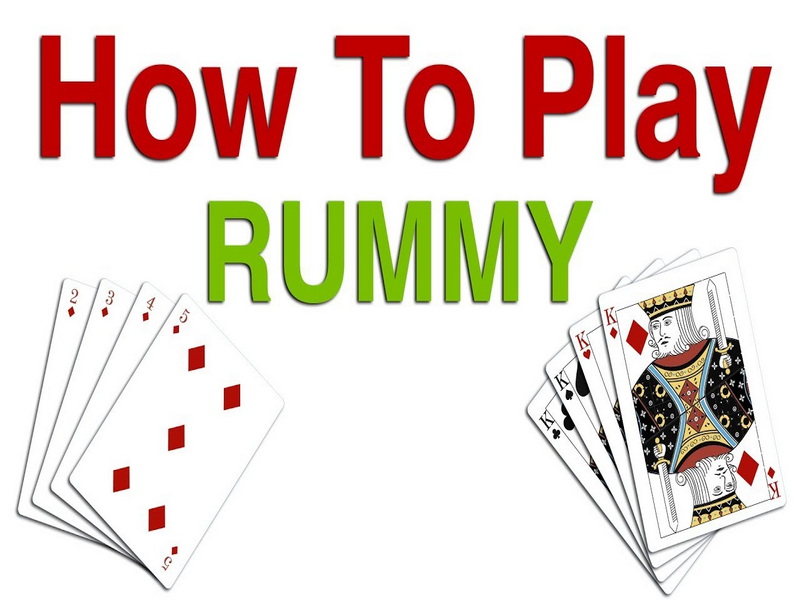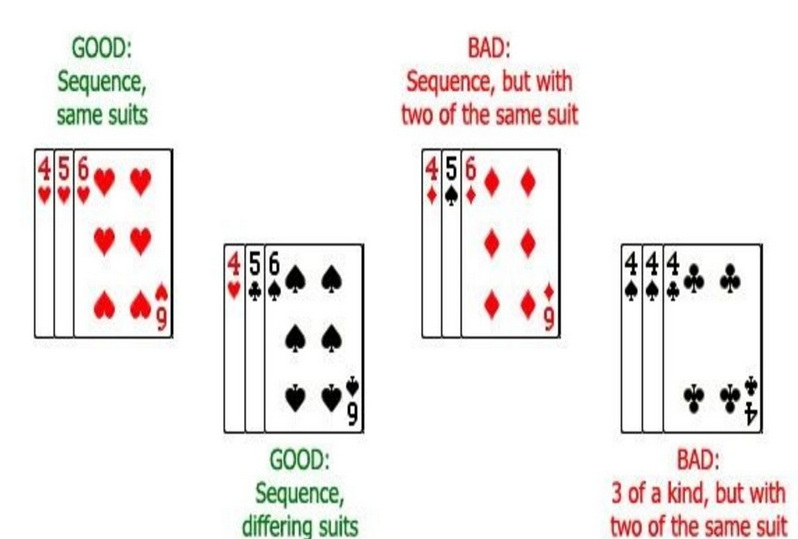Content Menu
● The Basics of Gin Rummy
>> Setting Up the Game
● Gameplay Mechanics
>> Forming Melds
● Knocking and Going Gin
>> Knocking
>> Going Gin
● Scoring in Gin Rummy
● Advanced Strategies for Gin Rummy
>> Organize Your Hand
>> Pay Attention to Discards
>> Balance Your Hand
>> Know When to Knock
>> Manage Your Deadwood
>> Block Your Opponent
>> Aim for Gin
● Variations of Gin Rummy
>> Oklahoma Gin
>> Hollywood Gin
>> Straight Gin
● Etiquette and Fair Play
● Common Mistakes to Avoid
● Improving Your Gin Rummy Skills
● Conclusion
● Frequently Asked Questions
>> 1. What is the difference between Gin Rummy and regular Rummy?
>> 2. Can Aces be used as high cards in Gin Rummy?
>> 3. What happens if the stock pile runs out before someone knocks or goes gin?
>> 4. Is it always better to go for gin rather than knocking?
>> 5. How can I improve my Gin Rummy strategy?
● Citations:
Gin Rummy is a classic two-player card game that combines elements of skill, strategy, and luck. This popular variant of rummy has been entertaining players for generations since its creation in the early 20th century. In this comprehensive guide, we'll explore the rules, strategies, and nuances of Gin Rummy, providing you with everything you need to know to start playing and improving your game.

The Basics of Gin Rummy
Gin Rummy is played with a standard 52-card deck, without jokers. The game's objective is to be the first player to score 100 points, which is typically achieved over multiple rounds of play. Each round involves players trying to form melds (sets or runs) with their cards while minimizing the point value of their unmatched cards, known as deadwood.
Setting Up the Game
To begin a game of Gin Rummy:
1. Shuffle the deck thoroughly.
2. Each player draws a card; the player with the lowest card becomes the dealer.
3. The dealer distributes 10 cards to each player, one at a time.
4. The remaining cards are placed face-down in the center to form the stock pile.
5. The top card of the stock pile is turned face-up next to it, starting the discard pile.
Gameplay Mechanics
Gin Rummy's gameplay revolves around drawing and discarding cards to form melds and reduce deadwood. Here's how a typical turn unfolds:
1. The non-dealer goes first, choosing to either take the face-up card from the discard pile or draw the top card from the stock pile.
2. After drawing, the player must discard one card face-up onto the discard pile.
3. Play alternates between the two players, with each following the same draw-and-discard pattern.
Forming Melds
In Gin Rummy, players aim to form two types of melds:
1. Sets: Three or four cards of the same rank (e.g., three 7s or four Queens)
2. Runs: Three or more consecutive cards of the same suit (e.g., 5-6-7 of hearts)
It's important to note that Aces are always low in Gin Rummy, meaning they can only be used in runs as the lowest card (e.g., Ace-2-3 of spades).
Knocking and Going Gin
The round can end in one of two ways: knocking or going gin.
Knocking
A player can knock when the total point value of their unmatched cards (deadwood) is 10 or less. To knock:
1. The player discards face-down, signaling the end of the round.
2. Both players lay their cards face-up, arranging them into melds.
3. The knocker's opponent can lay off any of their deadwood cards onto the knocker's melds.
4. Points are then calculated based on the remaining deadwood.
Going Gin
When a player has no deadwood (all 10 cards form melds), they can "go gin" by discarding their last card face-down. This ends the round immediately, and the player receives a bonus in addition to the point difference between the hands.
Scoring in Gin Rummy
Scoring is a crucial aspect of Gin Rummy. Here's how points are calculated:
1. If the knocker has a lower deadwood count, they score the difference between the two players' deadwood.
2. If the knocker's opponent has an equal or lower deadwood count (known as an undercut), the opponent scores the difference plus a 25-point bonus.
3. Going gin awards the player 25 points plus the value of the opponent's deadwood.
Face cards (Jack, Queen, King) are worth 10 points each, Aces are worth 1 point, and number cards are worth their face value.

Advanced Strategies for Gin Rummy
To excel at Gin Rummy, consider implementing these strategies:
Organize Your Hand
Arrange your cards by suit and sequence to easily identify potential melds and track your deadwood count. This organization helps you make quicker, more informed decisions during play.
Pay Attention to Discards
Keep track of the cards your opponent discards and draws from the discard pile. This information can give you insights into their hand and help you decide which cards are safe to discard.
Balance Your Hand
Try to maintain a mix of potential sets and runs in your hand. This flexibility allows you to adapt to the cards you draw and increases your chances of forming melds quickly.
Know When to Knock
Knocking early with a low deadwood count can be a strong move, especially if you suspect your opponent has a high deadwood count. However, be cautious of knocking too early in the game, as your opponent may undercut you.
Manage Your Deadwood
Prioritize discarding high-value cards early in the game to reduce your deadwood count. Holding onto face cards and tens can quickly accumulate points against you if you're caught with them at the end of a round.
Block Your Opponent
If you notice your opponent drawing specific ranks or suits from the discard pile, consider holding onto cards that might complete their melds. This defensive strategy can prevent them from going gin or knocking early.
Aim for Gin
While knocking is a valid strategy, going gin offers the highest potential point gain. If you're close to gin and the risk is low, it may be worth drawing a few extra cards to try and achieve it.
Variations of Gin Rummy
While the classic version of Gin Rummy is widely popular, several variations exist that add new elements to the game:
Oklahoma Gin
In this variation, players can take multiple cards from the discard pile, provided they can use the bottom card in a meld. This rule adds a new layer of strategy to discard decisions.
Hollywood Gin
Hollywood Gin introduces a unique scoring system where players compete in three simultaneous games. This variation often leads to more dramatic point swings and longer overall gameplay.
Straight Gin
In Straight Gin, knocking is not allowed. Players must go gin to end the round, which typically results in longer, more intense games.
Etiquette and Fair Play
As with any card game, good sportsmanship and proper etiquette are essential in Gin Rummy:
1. Shuffle the deck thoroughly and offer your opponent a cut before dealing.
2. Keep your cards hidden from your opponent at all times.
3. Discard clearly and consistently to the same spot on the table.
4. Allow your opponent sufficient time to consider taking a discard before drawing from the stock pile.
5. If you knock or go gin, wait for your opponent to finish examining your hand before scoring.
Common Mistakes to Avoid
Even experienced players can fall into certain traps in Gin Rummy. Here are some common mistakes to watch out for:
1. Holding onto high cards for too long, increasing the risk of a high deadwood count.
2. Failing to pay attention to your opponent's discards and draws.
3. Knocking too early without considering the possibility of being undercut.
4. Neglecting to count your deadwood regularly throughout the round.
5. Focusing too much on one type of meld (sets or runs) and lacking flexibility in your hand.
Improving Your Gin Rummy Skills
To become a better Gin Rummy player:
1. Practice regularly, either with friends or through online platforms.
2. Study advanced strategies and incorporate them into your gameplay.
3. Analyze your games after playing, reflecting on your decisions and their outcomes.
4. Play against a variety of opponents to expose yourself to different playing styles.
5. Consider reading books or watching tutorials by Gin Rummy experts to gain new insights.
Conclusion
Gin Rummy is a captivating card game that offers a perfect blend of skill, strategy, and chance. By understanding the rules, implementing effective strategies, and practicing regularly, you can significantly improve your gameplay and enjoy the nuances of this classic game. Whether you're playing casually with friends or competing in tournaments, Gin Rummy provides endless opportunities for entertainment and skill development. Remember, the key to success lies in careful observation, strategic thinking, and the ability to adapt your play style as the game unfolds. With time and practice, you'll find yourself becoming a formidable Gin Rummy player, ready to take on any challenge that comes your way.

Frequently Asked Questions
Here are five common questions about Gin Rummy, along with their answers:
1. What is the difference between Gin Rummy and regular Rummy?
Gin Rummy is a two-player variant of Rummy with specific rules for knocking and going gin. Unlike regular Rummy, players in Gin Rummy do not lay down melds during the game but instead reveal their entire hand at the end of the round. Gin Rummy also has a unique scoring system and typically ends when a player reaches 100 points.
2. Can Aces be used as high cards in Gin Rummy?
No, in Gin Rummy, Aces are always low. They can only be used as the lowest card in a run (e.g., Ace-2-3 of hearts) and cannot be used as high cards after a King.
3. What happens if the stock pile runs out before someone knocks or goes gin?
If the stock pile is exhausted before a player knocks or goes gin, the round ends in a draw. No points are scored, and the cards are reshuffled for a new round with the same dealer.
4. Is it always better to go for gin rather than knocking?
While going gin offers the highest potential point gain, it's not always the best strategy. Knocking early with a low deadwood count can be advantageous, especially if you suspect your opponent has a high deadwood count. The decision to knock or pursue gin should be based on the current game situation and your assessment of your opponent's hand.
5. How can I improve my Gin Rummy strategy?
To improve your Gin Rummy strategy, focus on organizing your hand effectively, paying close attention to your opponent's discards and draws, managing your deadwood count, and practicing regularly. Additionally, study advanced techniques, analyze your games after playing, and consider reading books or watching tutorials by experienced players to gain new insights and strategies.
Citations:
[1] https://www.youtube.com/watch?v=Uy063oI9Gkk
[2] http://cs.gettysburg.edu/~tneller/games/ginrummy/eaai/gin-rummy-rules.pdf
[3] https://www.mplgames.com/gin-rummy/gin-rummy-strategy
[4] https://www.mplgames.com/gin-rummy/gin-rummy-variations
[5] https://www.britannica.com/topic/gin-rummy
[6] https://bicyclecards.com/how-to-play/gin-rummy
[7] https://games.skillz.com/guides/card-games/how-to-play-gin-rummy
[8] https://www.thesprucecrafts.com/gin-rummy-card-game-strategy-and-tips-412364
[9] https://www.ginrummy-palace.com/rummy-vs-gin-rummy/
[10] https://boardgames.stackexchange.com/questions/tagged/gin-rummy
[11] https://www.ginrummy-palace.com/gin-rummy-strategies/
[12] https://mainline.gg/common-mistakes-to-avoid-when-playing-gin-rummy/
































